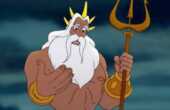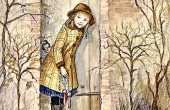Laurika Nxumalo
Laurika is freelance writer, columnist, and communication sciences student. Her favourite quote is, “Be who God meant you to be and you will set the world on fire.”
Contributor II
- Plebian Penman
- Common Writer
- Lurker
- Pssst
- Hand Raiser
- Sharp-Eyed Citizen
- Town Watch
- Animator
- Well Read
- ?
- Articles
9 - Featured
3 - Comments
55
- Ext. Comments
30 - Processed
21 - Revisions
18
- Topics
12 - Topics Taken
2 - Notes
18
- Topics Proc.
18 - Topics Rev.
9
- Points
1331 - Rank
91 - Score
746
Latest Articles
Latest Topics
Mrs. Mallard's freedom and confinement in The Story of an HourThe Story of an Hour illustrates the dual themes of confinement and freedom. Mrs. Mallard's story reveals the restricted roles of women in 19th-century society and the profound yearning for selfhood that lay beneath those constraints. The brief and intense exploration of freedom in Louise's mind highlights both the allure and the cost of autonomy in a world that does not yet recognize a woman's right to it.
|
Pending | The Joker’s Underestimated InfluenceIn The Dark Knight, the Joker claims that his chaotic nature doesn't have a set plan, yet he nevertheless manipulates events to suit his destructive nature. He spots and takes advantage of other people's flaws, whether they be the heroes' moral defects or the corruption in the police. Discuss how his strategic thinking and erratic behavior turn him into an underdog. |
Pending | The Underdog in the Context of Justice and MoralityJustice vs anarchy, order versus chaos, and the weight of leadership are some of the themes explored in The Dark Knight. Batman, Gordon, and Dent are the forces who attempt to uphold order in the face of enormous difficulty. As the Joker emerges, Batman, Gordon, and Dent's attempts to destroy Gotham's organized crime are put to the test. Examine how, throughout their moral journeys, each character represents an underdog, particularly when confronted with situations that contradict their convictions. |
Pending | The Ethical Underdog: Batman vs. The JokerIn the Dark Knight (2008), Batman upholds a strong moral code, refraining from killing and believing in the possibility of forgiveness despite his vigilante tactics. In contrast, The Joker is a master of disorder who deliberately subverts morality and social conventions in an effort to demonstrate the pointlessness of justice and order. Analyze Batman's philosophic underdog persona as he pursues justice in a city that frequently appears hopeless. |
Pending | The Role of Gotham's Citizens as Underdogs in the Boats DilemmaTowards the end of The Dark Knight (the boat dilemma), the Joker supplies two boats with a detonators – these ferries are carrying explosives. Aboard one are citizens and the other is carrying criminals – the Joker threatens to blow up both ferries if one does not destroy the other before midnight. Take a look at how Gotham's ordinary citizens, who are sometimes disregarded or forgotten, contribute to the city's struggle for survival. When they stand up to corruption and criminality, how do they represent the spirit of the underdog? |
Pending | Batman as Gotham’s UnderdogA major theme in The Dark Knight is Batman's mental struggle between his inner demons and his drive to enforce justice. It reveals how vulnerable he is and how his work as a vigilante affects him. Batman's limited strength and the difficulties he encounters in combating crime are further highlighted by the mob's control and the ease with which they can manipulate the city's systems. Discuss how his battle to uphold justice in spite of being mistrusted, feared, and frequently working alone in the shadows turns him into an underdog. |
Pending | The Joker's Role as the Ultimate UnderdogIn The Dark Knight, the Joker is first portrayed as a low-level criminal, a "thug" who works on the outskirts of Gotham's organized crime scene. Despite his relatively unimportant role, the Joker challenges the authority of the police, the mob, and even Batman himself with his acts, which aim to upend the city and the status quo. Examine how, while appearing helpless, the Joker is a powerful underdog. |
Pending | Harvey Dent's Transformation into Two-FaceHarvey Dent in The Dark Knight adopts a worldview of chaos and randomness after losing his loved ones and being disfigured, believing that the world is intrinsically unpredictable and that every conclusion is equally valid. As Two-Face, Dent becomes violent and causes distraction, frequently targeting criminals or people who have offended him. How does Dent's story parallel the rise and fall of an underdog figure? |
Latest Comments
| Unveiling the Shadows: The Flawed Femininity of "Eternal Sunshine of the Spotless Mind" | |
Yellow is by far my favourite colour. I can’t believe that it can actually be associated with dodginess… What I’m seeing in ‘The Substance’ is that yellow has been used to evoke the feeling of something being slightly off or surreal, which might tie into the film’s exploration of truth and perception. | The Queen in Yellow: How The Substance Reinvents a Gilded-Age Short Story |
You’re welcome 😃 | Gender Roles in The Wheel of Time Series |
Indeed, the bad boy narrative needs to change. Some women might be attracted to the idea of “changing” someone. The belief that they can “fix” or “tame” a bad boy is often part of the allure. It can be rooted in the desire to feel needed or to have an impact on someone’s life, and all this can have a slight negative effect on one’s mental health. | Bad Boys: Dark, Dangerous, Disturbing… and Delicious |
I love ‘The Wheel of Time’ subtle commentary on the need for balance between masculine and feminine energies. Both sides of the One Power must be in harmony for the world to function. This becomes a metaphor for society itself, where the interplay between men and women—strength and compassion, force and intuition—is essential for achieving balance. In the end, the narrative seems to suggest that neither side can dominate the other, and true power lies in the fusion of both forces. | Gender Roles in The Wheel of Time Series |
I like the “What’s in a name” part – it’s quite informative. I also like how you tied the explanation of the characters names to the theme of movie. Great article | The True Meaning of Whiplash |
Oliver Twist reminds me of my schooling days… Yes, it’s complicated but they made us understand it | The Persistent Allure of Victorian Literature |
What an influential poet | From Innisfree to Byzantine: Nature and Culture in W. B. Yeats' Critique of Civilisation |








From the angle of Joel’s character, it seems the movie is romanticizing narcissism